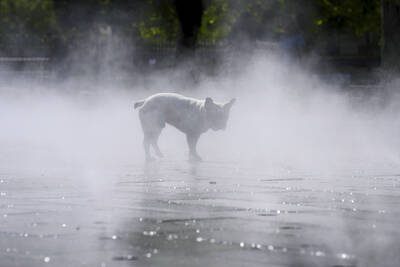My Week With Marilyn
With a similar premise to the delightful Me and Orson Wells, My Week With Marilyn takes an everyday kind of guy and puts him together with a great cinematic icon, in this case Marilyn Monroe. For those who buy Michelle Williams’ performance, the film is a gem, but if you don’t, the movie becomes rather less effective, though with a supporting cast that includes contemporary acting royalty playing the roles of Laurence Olivier (Kenneth Branagh) and Dame Sybil Thorndike (Judi Dench), there is such a wealth of talent, all very astutely marshaled by director Simon Curtis, that the flick has charm, energy and beauty to spare. The film is based on the diary of Colin Clark (played in the film by Eddie Redmayne), a young man who found himself looking after Monroe for one week when she was in London for the filming of The Prince and the Showgirl in the 1950s. A nobody in a world of theatrical titans, he catches a glimpse of the Marilyn that her contemporaries were unable to see.
Sleeping Beauty
The debut feature by Australian Julia Leigh, who also wrote the screenplay, and made under the aegis of Jane Campion (The Piano, Bright Star), Sleeping Beauty tells the story of a young university student who becomes involved in erotic entertainments for older men. The film, which stars Emily Browning (Sucker Punch), fetishizes its lead, making her a kind of erotic object of desire, building its dramatic tension through the disconnect between her passive role as a provider of amatory fantasy and her own sexual desires. With a strong psychosexual theme and a languid pace, Sleeping Beauty is likely to divide audiences between those who can embrace its strangeness and those who simply find it pretentious. We get to see a very great deal of Browning, the camera lingering over her generally unclothed body, which may be enough of an attraction in itself, but there are also some interesting, if rather peculiar, reflections on sexuality as well.
Love Is Not Blind (失戀33天)
Romantic comedy that relies on a decent story and good chemistry between the two leads; the absence of either high artistic pretension or absurd slapstick also helps. The story revolves around the romantic life of Xiaoxian (played by Bai Baihe, 白百何), a wedding planner, who catches her fiance and her best friend kissing in a Beijing shopping mall. She gets lots of support from her gay colleague Xiaojian (played by Wen Zhang, 文章), and it is this friendship that holds the movie up. Within the genre conventions of the rom-com, Love Is Not Blind is not without insight into the lives of young Chinese urbanities trying to juggle sexual independence and old-fashioned romantic fantasy.
Sengoku Basara — The Last Party
A feature film installment that follows on from a popular anime series of the same name. The backstory is hugely complex and the film dives into the action, winning praise from fans for taking the whole production to a new level. But if you have not been a regular viewer of the TV series, which started in 2009, you are likely to get thoroughly lost in the intricacies of the plot. Set in the Warring States period of Japanese history just prior to the beginning of the Tokugawa Shogunate, various warlords battle and intrigue for supremacy. There is no aspiration to historical accuracy, though the film takes the story up to the Battle of Sekigahara, which determined the final winner of the conflict.
Mahler Symphony No. 2 in C Minor “Resurrection”
A classical music recording released on the big screen that presents Leonard Bernstein conducting the London Symphony Orchestra. The recording is part of a 20-year-long association between Bernstein and the Unitel label to release a complete cycle of Mahler recordings. The performance features soloists Sheila Armstrong and Janet Baker. The series of recordings, mostly made between 1971 and 1985, is credited with triggering a major re-appreciation of Mahler’s work.
When Yesterday Comes (昨日的記憶)
Following the success of The Long Goodbye (被遺忘的時光), the Taiwan Catholic Foundation of Alzheimer’s Disease and Related Dementia (財團法人天主教失智老人社會福利基金會) has embarked on a second documentary film dealing with the plight of elderly people suffering from conditions like Alzheimer’s and other degenerative disorders resulting in memory loss. When Yesterday Comes takes the route of a compendium of four shorts by different directors. The films are in different styles and reflect the sensibilities of directors Ho Wi-ding (何蔚庭), Shen Ko-shang (沈可尚), Chiang Hsiu-chiung (姜秀瓊) and Singing Chen (陳芯宜). The project has enlisted the participation of a number of well-known actors, particularly Chang Chen (張震) and Sonia Sui (隋棠) in the segment titled Healing.

Has the Taiwan People’s Party (TPP) changed under the leadership of Huang Kuo-chang (黃國昌)? In tone and messaging, it obviously has, but this is largely driven by events over the past year. How much is surface noise, and how much is substance? How differently party founder Ko Wen-je (柯文哲) would have handled these events is impossible to determine because the biggest event was Ko’s own arrest on multiple corruption charges and being jailed incommunicado. To understand the similarities and differences that may be evolving in the Huang era, we must first understand Ko’s TPP. ELECTORAL STRATEGY The party’s strategy under Ko was

Before the recall election drowned out other news, CNN last month became the latest in a long line of media organs to report on abuses of migrant workers in Taiwan’s fishing fleet. After a brief flare of interest, the news media moved on. The migrant worker issues, however, did not. CNN’s stinging title, “Taiwan is held up as a bastion of liberal values. But migrant workers report abuse, injury and death in its fishing industry,” was widely quoted, including by the Fisheries Agency in its response. It obviously hurt. The Fisheries Agency was not slow to convey a classic government

It’s Aug. 8, Father’s Day in Taiwan. I asked a Chinese chatbot a simple question: “How is Father’s Day celebrated in Taiwan and China?” The answer was as ideological as it was unexpected. The AI said Taiwan is “a region” (地區) and “a province of China” (中國的省份). It then adopted the collective pronoun “we” to praise the holiday in the voice of the “Chinese government,” saying Father’s Day aligns with “core socialist values” of the “Chinese nation.” The chatbot was DeepSeek, the fastest growing app ever to reach 100 million users (in seven days!) and one of the world’s most advanced and

It turns out many Americans aren’t great at identifying which personal decisions contribute most to climate change. A study recently published by the National Academy of Sciences found that when asked to rank actions, such as swapping a car that uses gasoline for an electric one, carpooling or reducing food waste, participants weren’t very accurate when assessing how much those actions contributed to climate change, which is caused mostly by the release of greenhouse gases that happen when fuels like gasoline, oil and coal are burned. “People over-assign impact to actually pretty low-impact actions such as recycling, and underestimate the actual carbon